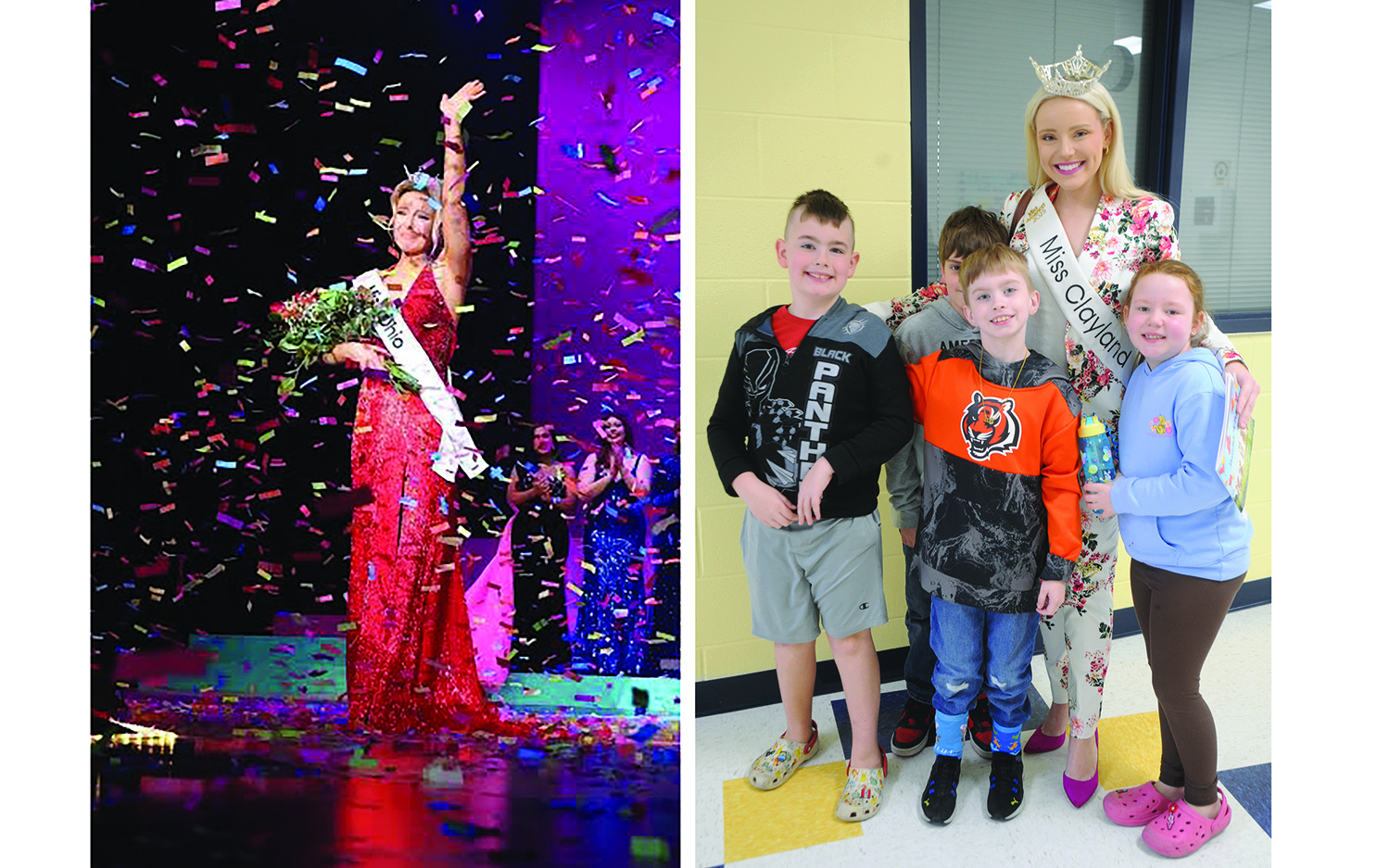Day three: Jury begins deliberation
Published 12:00 am Friday, January 28, 2005
The Ironton Tribune
They opted to go home and get some sleep and then start over again today.
The seven-man, five-woman jury in the Carlos Jenkins murder trial will begin deliberations again this morning. They received the case just before 4 p.m.Wednesday. Two hours later, Common Pleas Judge Richard Walton asked the panel if they preferred to work through the evening or go home; the jury opted to do the latter.
This came after a full day's testimony that included the defendant's disrobing to display his tattoos. Jenkins was recalled to the witness stand to refute the prosecution's claim that he had a tattoo of a marijuana plant and a tattoo of 666, the Biblical symbol for the anti-Christ.
"The tattoos, the one of the 666 and the marijuana plant, do you have those?" Jenkins' attorney, David Reid Dillon asked his client.
"No," Jenkins replied.
"Would you be willing to exhibit those to the jury?" Dillon queried. With the judge's permission, Jenkins, wearing shackles around his ankles, approached the jury box and first removed his grey sweatshirt and then dropped his pants to reveal a heavily tattooed body but neither of the tattoos in question.
"Have you ever had a tattoo to cover an existing tattoo?" Lawrence County Prosecutor J.B. Collier asked during cross examination, noting that his information came from the Ohio Bureau of Criminal Investigation.
Jenkins said he had not.
Earlier in the day, private investigator Wayne Sweeney, of Clever Investigations, testified that when he searched the crime scene in December 2004, he had found a .22 pistol clip on top of the refrigerator that he thought the Lawrence County Sheriff's detectives overlooked when they searched the John Turvey residence at the time of the murder.
Sweeney, a former
Lawrence County Sheriff's deputy and former law enforcement officer in Gallia County, also took exception to other aspects of the investigation, such as why only 18 minutes of a five-hour interview had been audiotaped, why a bullet had not been retrieved from a pedestal fan in the residence and why DNA had not been retrieved from a non-filtered cigarette butt found at the Turvey house. Turvey himself smoked only filtered cigarettes.
"To me, when you're talking about evidence, you want to get as much as possible," Sweeney said.
But under cross examination from Collier took issue with Sweeney's crime scene and criminal investigation training, pointing out that he has not been in law enforcement for several years and received his training in the mid 1980s.
During the rebuttal phase, Collier recalled Lawrence County Sheriff's detective Shane Hanshaw, who led the Turvey murder investigation.
Hanshaw testified that he is an instructor for Ohio Peace Officers Training Academy, which provides training for area law enforcement personnel.
Hanshaw told the court he had not actually questioned Jenkins for five hours the night after the Turvey murder when Jenkins came to the sheriff's office to talk to detectives; five hours was simply the amount of time that elapsed between Jenkins' arrival and his arrest and book in at the jail.
Collier also pointed out that local authorities had sought and received help early on from the BCI and the two entities had conducted a thorough search of the crime scene. Hanshaw testified the .22 clip Sweeney referred to had been looked at and determined to have been on top of the refrigerator for quite a long time, as it was covered with dust.
Keith Woods, father of Jenkins' girlfriend, Samantha Woods; Larry Jenkins, Carlos Jenkins' brother; and Sonny Riffe, a family friend, were among those called as character witnesses on the defendant's behalf.
Larry Jenkins testified that his brother was at his house at about 8:20 a.m. the morning of the murder. Jenkins testified that his brother was not scared, upset or displaying any of the emotions one would expect from someone who had committed a murder.
But during cross examination, Collier pointed out that both Larry Jenkins and his mother, Shirley Jenkins, both said Carlos Jenkins was with them
in their separate houses at the same time on the same day.
"You've testified that your brother was with you at your house at 8:20 a.m. on Sept. 3. Are you certain?" Collier asked.
"Yes," Larry Jenkins answered.
"Your mother testified yesterday that at 8:20 Carlos Jenkins was at her house," Collier countered.
"No, he was with me," Larry Jenkins said.
"Then was your mother mistaken?" Collier asked.
In his closing statement, Collier reminded the jury Jenkins' witnesses had all told different versions of what Carlos Jenkins was doing at the time of the John Turvey murder, and Jenkins himself changed his story repeatedly and then blamed detectives for coercing him into admitting guilt, something that was not evident from Jenkins' own taped and written statements at the time of his arrest.
"They're all trying to help, and I understand that," Collier said. "But they didn't get their stories right."
But Dillon countered in his closing statement that evidence does not show Jenkins to be guilty.
"Carlos Jenkins is guilty of being slow, inarticulate and confused but he is not guilty of murder," Dillon said. "There is no evidence of fingerprints, DNA, no tackle box was ever found, no shell casings, no murder weapon."
Walton instructed jurors to decide Jenkins' fate based solely on overwhelming evidence of guilt.
"A defendant must be acquitted unless the state produces evidence which convinces you beyond a reasonable doubt of every essential element of the offense charged in the indictment," he said. … "Reasonable doubt is a doubt based on reason and common sense."
Deliberations resumed at 9 a.m. today.





